Sexual Abuse in Sports: It Isn’t New, Part 2
Amid a rising flood of sexual misconduct allegations involving coaches and others, Olympics officials should begin to face the #MeToo music.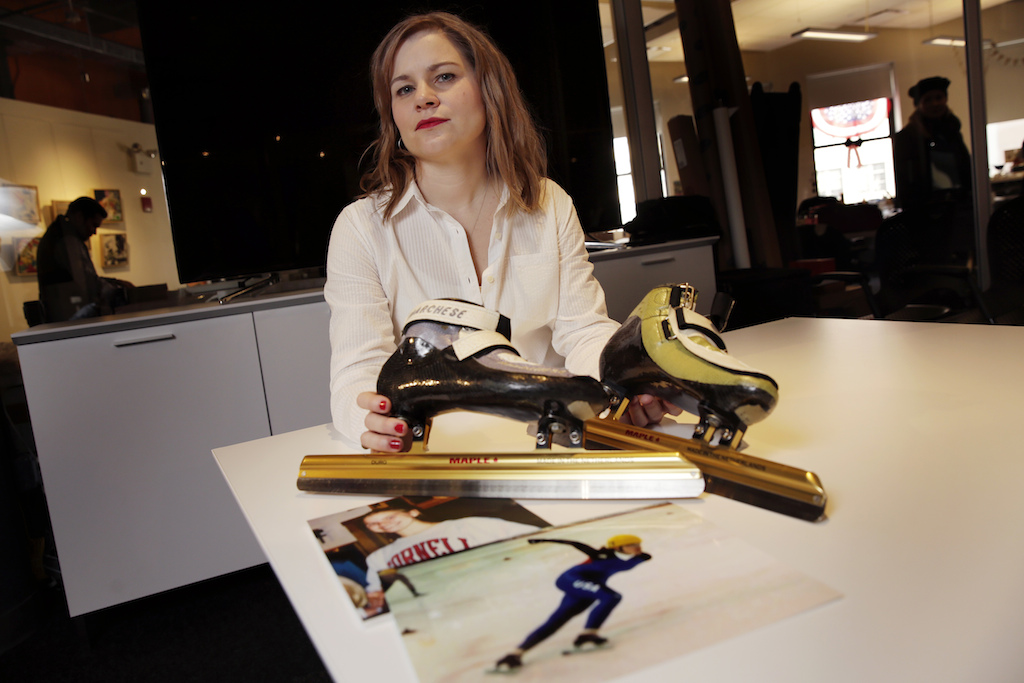 Former competitive speedskater Bridie Farrell poses with a pair of her skates and photos of herself as a young skater in March. (Richard Drew / AP)
Former competitive speedskater Bridie Farrell poses with a pair of her skates and photos of herself as a young skater in March. (Richard Drew / AP)
This is the second installment of a two-part series. Read Part One here.
With the arrival of the Pyeongchang Olympics, headlines blare about the Russian doping scandal. The Court of Arbitration for Sport—appointed by the International Olympic Committee—reinstated 28 Russian athletes to the Games who had been banned for doping, and then the IOC banned them anyway. Such emphasis on “athletes who cheat” makes it appear as if the most serious problem in sports is dishonest athletes. But what would happen if every coach, official, sponsor or doctor who had sexually abused an athlete, and those whose complicity allowed it to happen, faced an arbitration board that could ban them for life?
The “Olympic family”—as the IOC affectionately calls itself—includes sponsors, sports brass, politicians and athletes. At the head of the family table is the executive board, composed of 11 men and four women. In total, the IOC has 99 regular and 47 honorary members, for a total of 146: 114 men and 32 women.
An imbalance in gender power is de rigueur for virtually every national sports governing body, national Olympics committee and international sports federation affiliated with the IOC. The executive board of the United States Olympic Committee (USOC) has 10 men and four women, while its board of directors is composed of 10 men and six women.
For decades, sports organizations have wrung their hands, saying they wished more women would step up to leadership positions—as if women haven’t tried. In some countries, things have gotten worse. Canada had 72 male coaches and 13 female coaches at the Vancouver 2010 Olympics—just under a 20 percent representation of women. At Pyeongchang in 2018, it has 88 men and eight women on the coaching staff, a significant drop in female coaches—to below 10 percent. Christie Cahill, the USOC’s director of communication, says the organization doesn’t have a breakdown of coaches by gender at the Pyeongchang Olympics.
Being a former coach or athlete is one way a person may be considered for the IOC, though having a great amount of wealth can circumvent the need to have athletic ability or coaching experience. Members are not chosen by their countries, but by the IOC. The process, like most of what the IOC does, is secretive. The IOC is like a secular version of the Vatican, and, similar to what has occurred in the Catholic Church, survivors of sexual abuse have just begun to make the IOC face the #MeToo music.
Andrew Gabel won a silver medal at the 1994 Olympics in short track speedskating. During his career he won a total of 75 international medals and competed at 12 world championships. By 1994 he was the athletes’ rep on the U.S. speedskating board; by 1999 he was vice president, and became president in 2002. At the 2002 Salt Lake Olympics, he was director of figure skating and speedskating, and a member of the International Skating Union’s technical committee. As he climbed the ladder within the world of sports—ironically starting first as the athletes’ rep in the 1990s—he was, some fellow skaters allege, having sexual relationships with female teammates, according to the Chicago Tribune.
In 2013, Bridie Farrell, former American record holder in the 1500-, 3000- and 3000-meter relay, told her story on Milwaukee’s NPR affiliate, WUWM. She was 6 when she started speedskating and 15 when, she alleges, Gabel—who was 33 and still competing—started grooming her sexually, telling her what she could and couldn’t eat, filtering who she could be with, ensuring she ended up in his car before and after practice. He rose through the ranks, while Farrell had injury after injury and didn’t make the Olympic team despite breaking American records.
She told WUWM, “I was petrified, because I was young and in speedskating, and I was knocking on the door to the junior national team, then the senior national team, and I didn’t want to do anything to jeopardize that. Then there was a period of my life when I didn’t say anything because I realized I was hurt, and I was broken. And it took a long time and a lot of work and some pretty dark times to come to grips with it and put myself together.”
A second speedskater, Nikki Ziegelmeyer (now Meyer), spoke out after Farrell did. In a story in The Daily Mail, Meyer alleged that Gabel raped her at the U.S. Olympic Education Center in 1991 when she was 15. She said he told her that if she said anything, no one would believe her.
After these charges surfaced, Marie Claire magazine reported that other athletes alleged that Gabel had improper sexual relationships with other girls.
Gabel resigned from his positions after Farrell’s allegations became public, according to The Daily Mail story, and he gave up his lifetime membership in US Speedskating. Acknowledging he had used poor judgment, he admitted he had sexual activity—which he called consensual—with an unnamed “female teammate.” He continues to be a member of the National Speedskating Museum and Hall of Fame.
“It frustrates me that people say they can’t believe sexual abuse happens so frequently. It happens everywhere—in the Catholic Church and schools—so why is it a surprise that it happens in sport?” Farrell told me by phone from Brooklyn, N.Y., where she’s working to get the Child Victims Act—which would extend the statute of limitations in sexual abuse cases—passed in New York’s Legislature. Right now, a victim of child sexual abuse must report it to the police before age 23; even one day later makes the action null and void. Farrell started the nonprofit NY Loves Kids to organize support for the Child Victims Act. She also uses her status as a former national-level athlete every way she can to persuade New Yorkers to support the bill.
Farrell watched the gymnastics scandal unfold and believes the USOC is culpable. “With every day that goes by, it’s clear they knew about [the abuse] and didn’t do anything. They knew there was a hungry lion on the other side, and they fed him girls in leotards.
“Everyone thinks the Olympics is such a pure event—it’s a uniting force in the world and communities, and that’s great. I’m 100 percent glad I went back to speedskating and tried to make the team in 2014. I would go back and skate again today, but there’s no rink near me. I love skating, but I don’t feel there’s been any change in Olympic sports; the fundamentals that allowed the abuse to happen to me haven’t changed at all.”
Last November, former U.S. Speedskating Team member Eva Rodansky received a message from Susan Auch, CEO of Speed Skating Canada. Auch, a two-time Olympic medalist in the 1990s, was asking about former American head coach Michael Crowe. He had gone to Canada to coach in 2007, and was head coach of the Canadian team for Pyeongchang. It was a discussion Rodansky had been waiting to have for years.
She was 11 when she watched the 1988 Winter Olympics. “I wanted to play hockey then, but my mom didn’t want me to play. She was from Poland and had done some recreational speedskating there, so that’s how I got hooked,” she told me by phone from Ann Arbor, Mich., where she resides. “We just had short track, and I wanted my own lane.” Long track is a large oval in which two competitors race in separate lanes, as opposed to the groups of skaters in short track.
In 1992 she switched to long track. “It was the junior girls nationals. I came [in] fourth overall.” She had caught the eye of the former U.S. Speedskating national coach. At 15, Rodansky and another girl, Amy Sannes, were asked by Crowe to come to a training camp in Calgary, Canada, with a group of skaters he coached privately. Sannes went; Rodansky’s mother wouldn’t let her. All the other skaters were in their 20s; Crowe was 39.
Fast forward to 2002. “I was invited to be on the 2002 World Cup team, but I felt uncomfortable. I put my Ph.D. studies on hold and tried to make it work, but the atmosphere was too toxic. I didn’t feel at all welcome—like I was an outsider,” Rodansky said. Between 2002 and 2006, she tried on a number of occasions to “be part of the team.” But too often, she said, selection for the team had little to do with the fastest times on the ice. Virtually every Olympic sport in every country requires that athletes sign a national team contract that includes a “selection discretion” clause laced with such words as “compatibility” and “teamwork” to describe what is desired beyond fast times. It’s the perfect way to keep out “troublemakers,” which Rodansky says was the label put on her because she questioned the status quo.
She says she left speedskating in 2006 in disgust because she felt Crowe was taking improper advantage of his position. Rodansky, who did not allege personal sexual abuse by Crowe, says Auch contacted her and asked her to call Speed Skating Canada’s Respect in Sport hotline and give any background she could. On Jan. 9, the organization announced that “Crowe was taking a leave of absence”—stunning news, given that the Olympics were only a month away. Ten days later, according to a story in the National Post, Speed Skating Canada admitted that a number of members of the Canadian team had made “complaints serious enough that they warranted an investigation,” though the organization didn’t specify what the complaints were about.
According to the National Post story, skater Chantal Cermak said that she and Crowe had had a “totally unethical” two-year affair between 1993 and 1995 while he coached her for the U.S. national team in the 1994 Olympics. According to the report, Cermak said the affair began when she was 28 and he was 40 and married at the time.
Speaking from her home in Bemidji, Minn., Cermak calls the coach-athlete relationship in international speedskating “sordid and creepy.”
“There was so much of it on our team, and all of the Europeans’. You shouldn’t be put through that kind of shame. You walk with your head down—not up. As a skater you need to feel good about yourself—how can you feel good when you don’t like what you’re doing?”
Cermak says, “I felt like I couldn’t talk—like I didn’t have the right to talk. I wouldn’t have a coach if I tried to put an end to it.”
Finn Halvorsen had headed up US Speedskating’s high-performance program from 1998 to 2002, but his dictatorial style made it too difficult for others to work with him and he was let go. Speed Skating Canada hired him as director of its long track program. A couple of years later, Crowe was added. In the fall of 2009, Speed Skating Canada announced just months before the Vancouver Olympics that Halvorsen had resigned after coaches and athletes found him too dictatorial, according to a report in the Toronto Star. Four years later, Speed Skating Canada has iced his pal Michael Crowe.
Speed Skating Canada did not respond to queries for this article.
On Feb. 7, sports human rights lawyers and Olympic athletes and coaches who founded the Committee to Restore Integrity to the USOC requested to the House Committee on Energy and Commerce that Scott Blackmun, CEO of the USOC, be asked to resign after creating “the underlying conditions for sexual abuse to thrive” for “nearly three decades.” In January, the congressional committee told the USOC and a number of sports governing bodies, including USA Gymnastics, that it is investigating. On Feb. 8, the House Oversight and Government Reform Committee announced a second investigation. The USOC stated the same day that it stood by Blackmun and would cooperate with any investigations.
Let the #MeToo Games begin.
Your support matters…Independent journalism is under threat and overshadowed by heavily funded mainstream media.
You can help level the playing field. Become a member.
Your tax-deductible contribution keeps us digging beneath the headlines to give you thought-provoking, investigative reporting and analysis that unearths what's really happening- without compromise.
Give today to support our courageous, independent journalists.

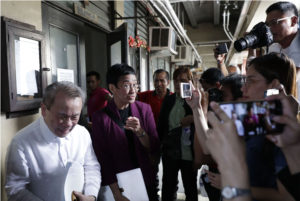
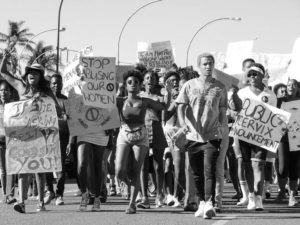
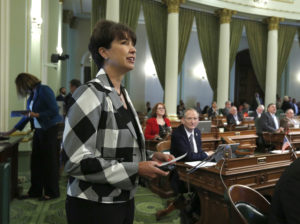

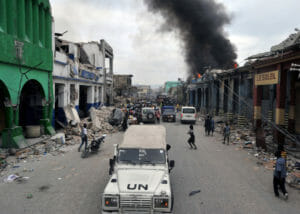
You need to be a supporter to comment.
There are currently no responses to this article.
Be the first to respond.